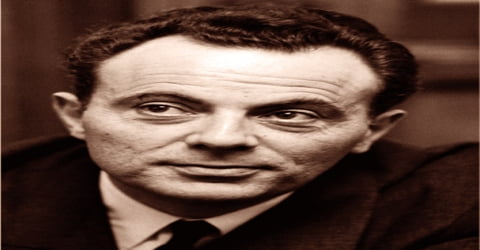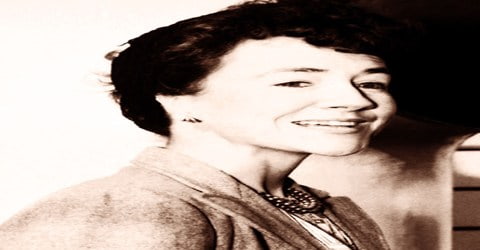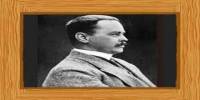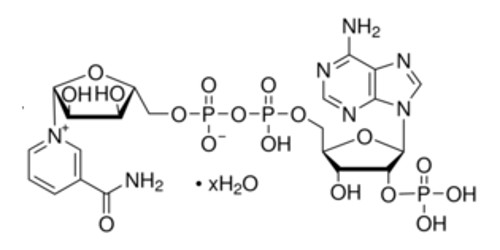Biography of François Jacob
François Jacob – French biologist.
Name: François Jacob
Date of Birth: 17 June 1920
Place of Birth: Nancy, France
Date of Death: 19 April 2013 (aged 92)
Place of Death: Paris, France
Occupation: Biologist
Father: Thérèse (Franck) Jacob
Mother: Simon
Spouse/Ex: Lise Bloch, Geneviève Barrier
Children: Pierre (b. 1949), Odile and Laurent (b. 1952) and Henri (b. 1954)
Early Life
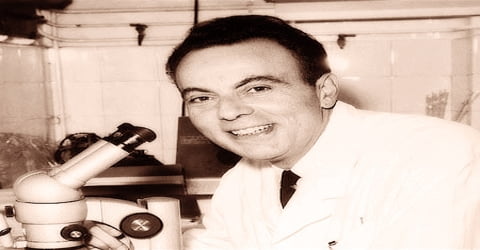
A French biologist who was awarded the ‘Nobel Prize in Physiology or Medicine’ in 1965 along with another French biologist Jacques Monod and French microbiologist Andre Lwoff for their discoveries regarding genetic control of enzyme and synthesis of virus, François Jacob was born on 17 June 1920 the only child of Simon, a merchant, and Thérèse (Franck) Jacob, in Nancy, France.
François Jacob made many significant contributions in the field of genetics by successfully collaborating with other noted scientists like Monod and Lwoff while serving the renowned ‘Pasteur Institute’ of France. His most remarkable finding was recognizing the regulator genes that regulate the activities of the structural genes. He is also known for the Jacob-Monod operon model that helps in elucidating the way genes are controlled. They elucidated on the effects of balance and imbalance between regulator genes and structural genes in a normal cell. They also examined messenger ribonucleic acid (mRNA), which convey genetic information from the deoxyribonucleic acid (DNA) carrier of genetic instructions to the ribosome the protein synthesizer of the cell. He showed that similar standards with regard to natural preference and evolution are followed by bacteria as done by other higher organisms. He was awarded ‘Grand Prix Charles-Leopold Mayer’ in 1962 by ‘Académie des Sciences’. In 1973 he was elected as a ‘Foreign Member of the Royal Society’ (‘ForMemRS’).
Childhood, Family and Educational Life
A French biologist, François Jacob was born on June 17, 1920, Nancy, France, to Thérèse (Franck) Jacob and his wife Simon as their only child. His father was a “conformist in religion”, while his mother and other close family members were secular Jews. Albert Franck, Jacob’s maternal grandfather, a four-star general, was Jacob’s childhood role model.
At seven Jacob entered the Lycée Carnot, where he was schooled for the next ten years; in his autobiography, he describes his impression of it: “a cage”. He was antagonized by rightist youth at the Lycée Carnot around 1934. He describes his father as a “conformist in religion”, while his mother and other family members important in his childhood were secular Jews; shortly after his bar mitzvah, he became an atheist.
After completing school education Jacob enrolled at the Faculty of Paris with the objective of becoming a surgeon and studied medicine. However, his studies were interrupted during the ‘Second World War’ in 1940 when the German Army invaded France. While in his second year of studies he fled to England in a boat in June 1940 and joined the ‘Free French Forces’ in London. Jacob was relocated to Africa where he served as a medical officer and witnessed several actions in Libya, Tunisia, Tripolitania, and Fezzan.
During the German occupation of France and on the heels of his mother’s death Jacob left France for Great Britain to join the war effort. Jacob, who had only completed his second year of medical studies, joined the medical company of the French 2nd Armored Division in 1940. He was injured in a German air attack in 1944 and returned to now-liberated Paris in on 1 August 1944. For his wartime service, he was awarded France’s WWII highest decoration for valor, the Cross of Liberation, as well as Légion d’honneur and croix de guerre.
Postwar Jacob continued with his medical studies in Paris and started examining tyrothricin and studying procedures of bacteriology. In 1947 he earned his M.D. after submitting his doctoral thesis on the effectiveness of antibiotics in combating local infections. However, due to his wartime injuries, he was unable to pursue his career as a surgeon.
Personal Life
François Jacob married pianist Lise Bloch in 1947. They were blessed with three sons and one daughter. Their four children were Pierre (born in 1949); Odile and Laurent (born in 1952) and Henri (born in 1954). His wife Lise died in 1983.
François Jacob remarried in 1999 to Geneviève Barrier.
Career and Works
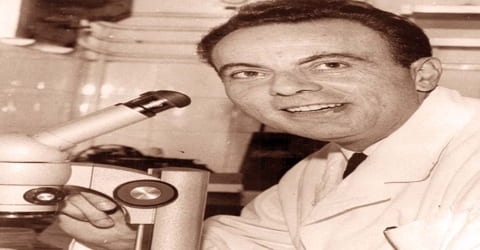
François Jacob joined the Pasteur Institute in 1950 as an assistant to André Lwoff. Lwoff’s laboratory location and its cramped quarters earned it the name of “the attic.” The year 1950 was an exciting one in Lwoff’s lab. Lwoff had been working with lysogenic bacteria, which are destroyed (lysed) when attacked by bacteria-infecting virus particles called bacteriophages. The bacteriophages invade the bacterial cell, then multiply within it, eventually bursting the cell and releasing new bacteriophages. According to Lwoff’s research, the bacteriophage first exists in the bacterial cell in a non-infectious phase called the prophage. He could stimulate the prophage to begin producing infective virus by adding ultraviolet light. These new findings helped to give Jacob the background he would need for his future research.
His work centered on the genetic mechanisms present in bacteriophages and bacteria as also with regard to the biochemical effects of mutations. He examined the properties of lysogenic bacteria and showed their immunity.
In the summer of 1954, Jacob and Wollman discovered what they termed erotic induction in the bacteria Escherichia coli. They later changed the name of the phenomenon to zygotic induction. In zygotic induction, the chromosome of a male bacterial cell carrying a prophage could be transferred to a female cell which was not carrying the prophage, but not vice versa. Zygotic induction showed that both the expression of the prophage and immunity was blocked in the latter instance by a variable present in the cytoplasm that surrounds the cell’s nucleus.
In 1954 Jacob earned his PhD. in science from the ‘University of Paris’ (Sorbonne) submitting his thesis on ‘Lysogenic bacteria and the provirus concept’. The same year he started collaborating with French microbial geneticist, Elie Wollman and examined the relation between the genetic substance of bacteria and prophage. The investigation resulted in defining the mechanics of unification of bacteria as also facilitated research of the genetic device of the bacterial cell. The work led to a number of new concepts like the procedure of genetic transfer from male to female and the episome concept. A summary of this work was given by him in the book ‘Sexuality and the Genetics of Bacteria’, which was published in 1961.
In another experiment, Jacob and Wollman mated male and female bacterial cells, separating them before they could complete conjugation. This also clipped the chromosome as it was moving from the male to the female. They found that the female accepted the chromosome bit by bit, in a certain order and at a constant speed, rather similar to sucking up a piece of spaghetti. Their study became known as the “spaghetti experiment,” much to Wollman’s annoyance.
In 1956 Jacob was made the Laboratory Director at the ‘Pasteur Institute’ and after a few years in 1960, he became the Head of the Department of Cell Genetics, a position which was created sometime recently.
In 1961 Jacob and Monod explored the idea that the control of enzyme expression levels in cells is a result of regulation of transcription of DNA sequences. Their experiments and ideas gave impetus to the emerging field of molecular developmental biology, and of transcriptional regulation in particular.
Jacob and Monod became reputed for their work on E.coli Lac operon that encodes protein required for the transfer and breakdown of sugar lactose. The duo displayed a model that showed the way levels of some of the cell proteins are regulated. According to their model, the formation of proteins is restricted when a repressor that is a DNA- or RNA-binding protein, put into code by a regulatory gene, binds to a segment of DNA i.e., its operator. The findings of Jacob and Monod convey that the balance between regulator genes and structural genes in a normal cell allows it to adjust in varying conditions while an imbalance can result in a production of new enzymes which can be either favorable or harmful for the cell.
In 1961, they explained the results of their research involving the mRNA and the now-famous Jacob-Monod operon model in the paper, “Genetic Regulatory Mechanisms in the Synthesis of Proteins,” which appeared in the Journal of Molecular Biology Molecular biologist Gunther S. Stent in Science described the paper “one of the monuments in the literature of molecular biology.”
In 1962 Jacob became a foreign member of the ‘Danish Royal Academy of Arts and Sciences’. Along with South African biologist Sydney Brenner, he came up with the ‘replicon’ hypothesis in 1963 to detail a few facets of bacterial cell division. From that time he dedicated himself to the genetic study of the mechanics of cell division.
In 1964, Collège de France also recognized his accomplishments by establishing a special chair in his honor. His greatest honor, however, came in 1965 when Jacob, Lwoff, and Monod shared the Nobel Prize for Physiology or Medicine. The award recognized their contributions “to our knowledge of the fundamental processes in living matter which form the bases for such phenomena as adaptation, reproduction, and evolution.”
In 1969 Jacob became a foreign member of the ‘American Philosophical Society’ and also the ‘National Academy of Sciences’ of the US. From 1970 he investigated cultured cells of mammals, especially some of the facets of the genetic properties of cells. He published a book ‘La logique du vivant, une Histoire de l’Hérédité’ (‘The Logic of Life: A History of Heredity’) in 1970 that showed the steps and phases in the study of living beings starting from the sixteenth century thereby leading to the area of molecular biology. Jacob was conferred honorary degrees by many universities.
Awards and Honor
In 1965 François Jacob received the ‘Nobel Prize in Physiology or Medicine’ together with Jacques Monod and Andre Lwoff.
Death and Legacy
François Jacob died on April 19, 2013, in Paris, France, at the age of 92 survived by his second wife Geneviève and four children from his first marriage.
During his career, Jacob wrote numerous scientific publications, including the books The Logic of Life: A History of Hereditary and The Possible and the Actual. The latter, published in 1982, delves into the theory of evolution and the line that he believes must be drawn between the use of evolution as a scientific theory and as a myth.
Information Source:
